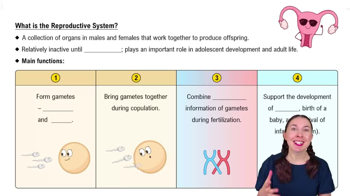Textbook Question
Is this statement true or false? 'Animal cells have mitochondria; plant cells have chloroplasts.' Explain your answer, and describe the functions of these organelles.
2278
views
 Verified step by step guidance
Verified step by step guidance Verified video answer for a similar problem:
Verified video answer for a similar problem:



 5:54m
5:54mMaster Prokaryotic & Eukaryotic Cells with a bite sized video explanation from Bruce Bryan
Start learning